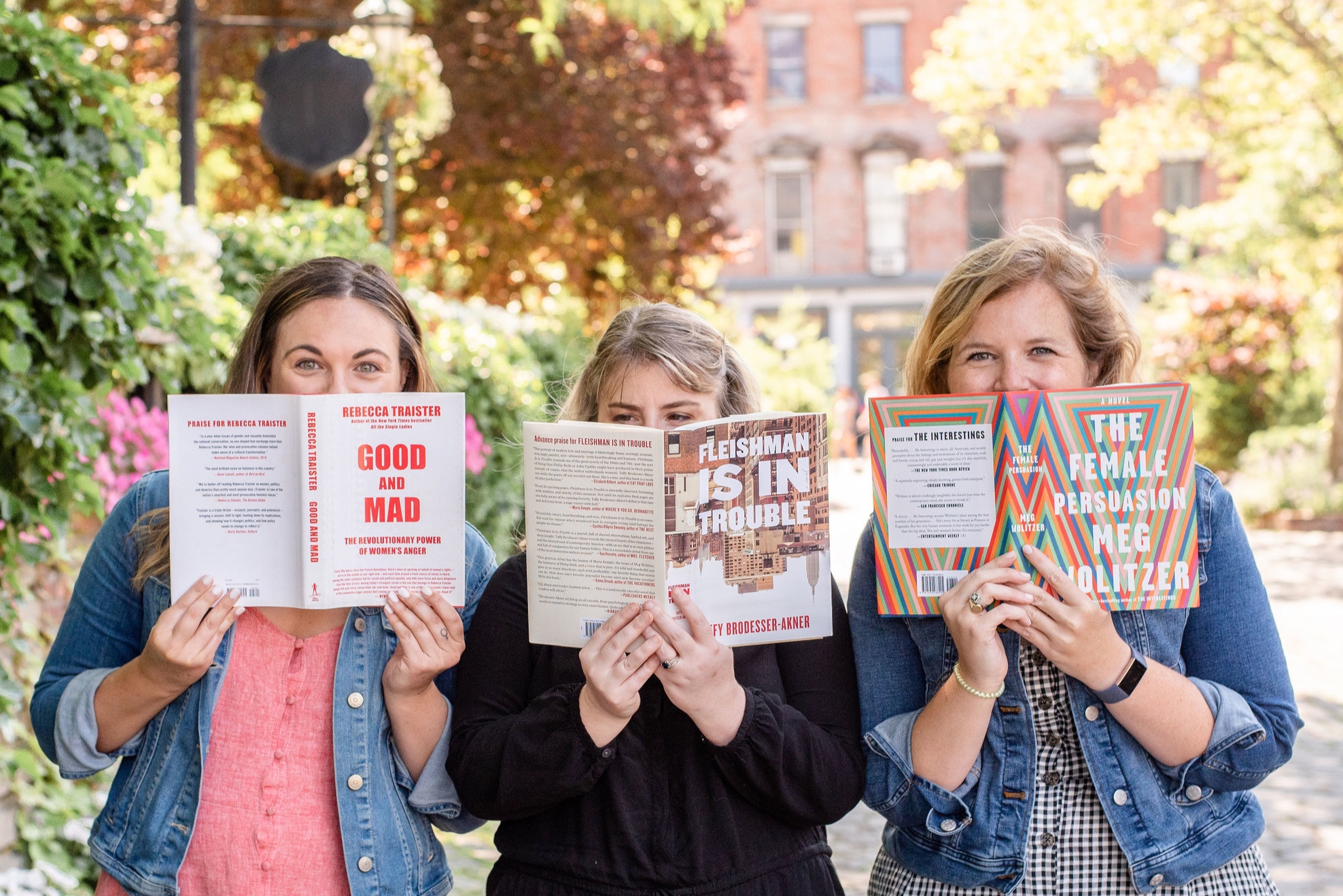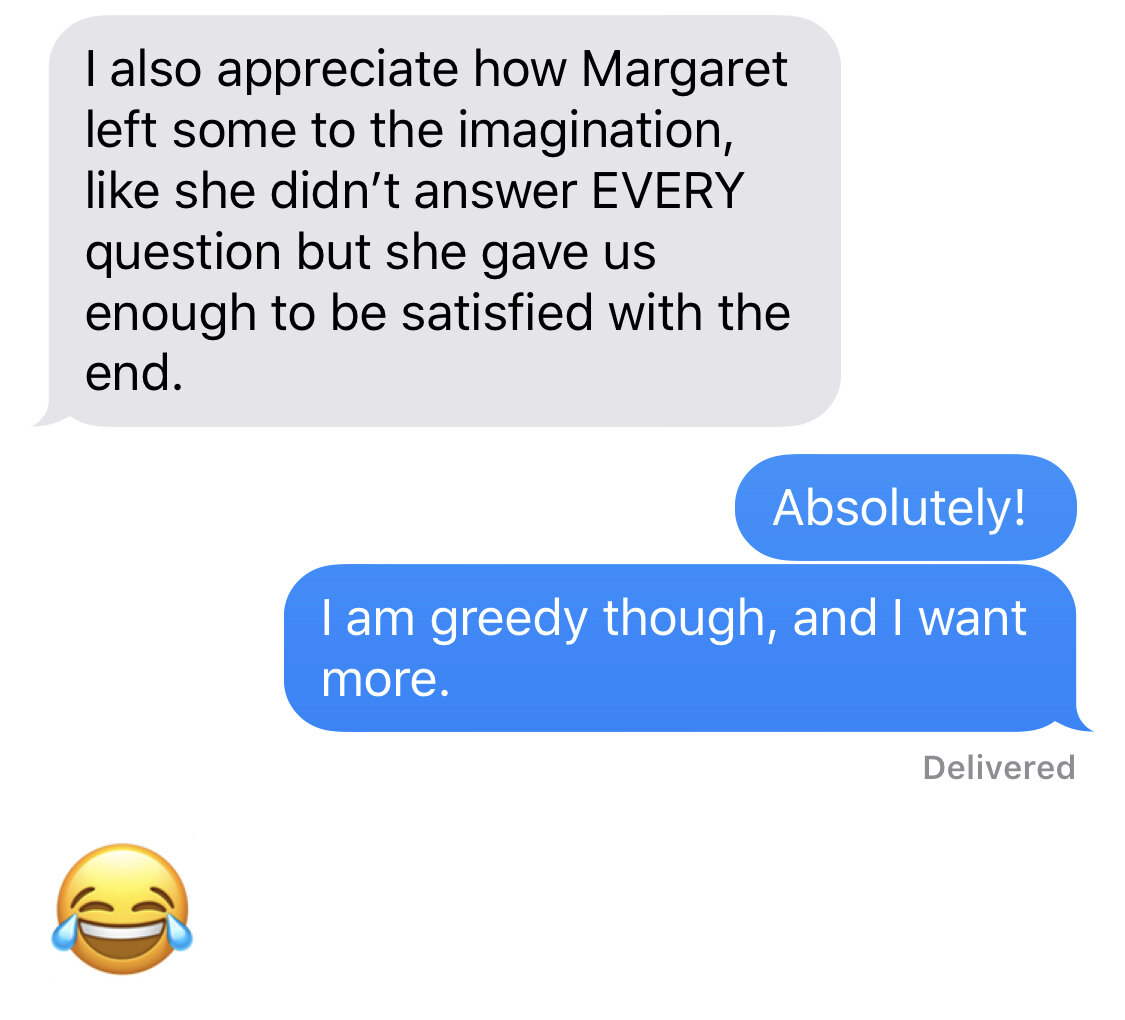Book Review: "The Testaments" by Margaret Atwood
“The Testaments” by Margaret Atwood
Synopsis: More than fifteen years after the events of The Handmaid's Tale, the theocratic regime of the Republic of Gilead maintains its grip on power, but there are signs it is beginning to rot from within. At this crucial moment, the lives of three radically different women converge, with potentially explosive results.
Two have grown up as part of the first generation to come of age in the new order. The testimonies of these two young women are joined by a third voice: a woman who wields power through the ruthless accumulation and deployment of secrets.
As Atwood unfolds The Testaments, she opens up the innermost workings of Gilead as each woman is forced to come to terms with who she is, and how far she will go for what she believes. - Nan A. Talese
Rating (out of 5): 4.5
Review:
This book starts 15 years after the “The Handmaid’s Tale” ends, and the reader is thrown right back into the world of the Aunts and the Marthas and the Commanders (blech) — however, you shouldn’t expect a traditional sequel. Offred is mentioned, but offhandedly several chapters in, and we don’t get a true resolution of that book. I don’t think that’s a bad thing, at all. Admittedly, I have never watched the show on “Hulu” - I tried with the first episode a few years ago, and it felt too real, so I’ve never tried again. I did re-read the last 5 chapters of the Handmaid’s Tale to remind how it ended, and I feel that was sufficient enough to trigger Gilead.
And yes, Gilead is still totally triggering, especially in 2019. It says a lot about the talents of Margaret Atwood that I was reading about absolutely terrible things, but I couldn’t put the book down - I finished it in about 4.5 hours of reading time. In “The Testaments,” the book is divided between the testimonies of three people: Aunt Lydia (yes, that Aunt Lydia), Agnes, and Daisy. Agnes is the daughter of Commander Judd, and she’s grown up in Gilead; Daisy is from the other side of the border, in Canada. I definitely don’t want to spoil anything here, but let’s just say that things get even more exciting when these three get connected.
Personally, I really liked the alternative points of view — we were able to read about Gilead from three drastically different perspectives. To my surprise, I really enjoyed Aunt Lydia the most — we heard about her life before Gilead, what happened during its founding, and her role within the regime. She was the most compelling character to me, but that shouldn’t denigrate the role that Agnes and Daisy play within the narrative. Agnes’ childhood within Gilead was like a train wreck I couldn’t look away from, to he honest - I found it so interesting and (thankfully) so different from my childhood. Margaret Atwood is so so so good at creating believable new worlds, and Gilead is no exception. I found Daisy a little annoying at first, but she did grow on me.
There is a lot of language about how inferior women are in this quasi-Puritan theocracy, and for my mental health, I had to read it as satire (knowing full well that there are people in this country that actually believe it). Otherwise, I would have cried instead of laughed, and lines like, “The muscles of my face were beginning to hurt. Under some conditions, smiling is a workout” not only made me laugh, but also definitely resonated. What woman hasn’t been told to “smile more”?
As she is wont to do, Margaret Atwood ended this book with a lot of action! and then a slightly ambiguous ending — giving us just enough, but not enough for me. I want all the answers, and I am aware that I can’t get everything that I want. In a nice call-back to “The Handmaid’s Tale,” this one ended with an epilogue at the Symposium on Giledean Studies and a speech by Professor Pieixoto.
All in all, I enjoyed this one much more than “The Handmaid’s Tale" — there was an undercurrent of optimism and hopefulness amidst the horror, which was not there in the first book (in my opinion, at least). There were a few twists and turns that I saw coming but others that took me by surprise, but it was a great journey to get to to the end of this one. Plus, it left me with a bizarre craving for oranges.
Trigger warnings: suicide, murder, misogyny, war, executions - there’s a lot here.
TL;DR: If you’re a fan of dystopian feminist literature that also provides commentary on our political era, there is no better bet than this book.
If you liked this, try these:
FYI: If you click on the links to make a purchase, SFOL may get a small percentage! It doesn’t increase the price to you at all, we promise. Thanks in advance!




